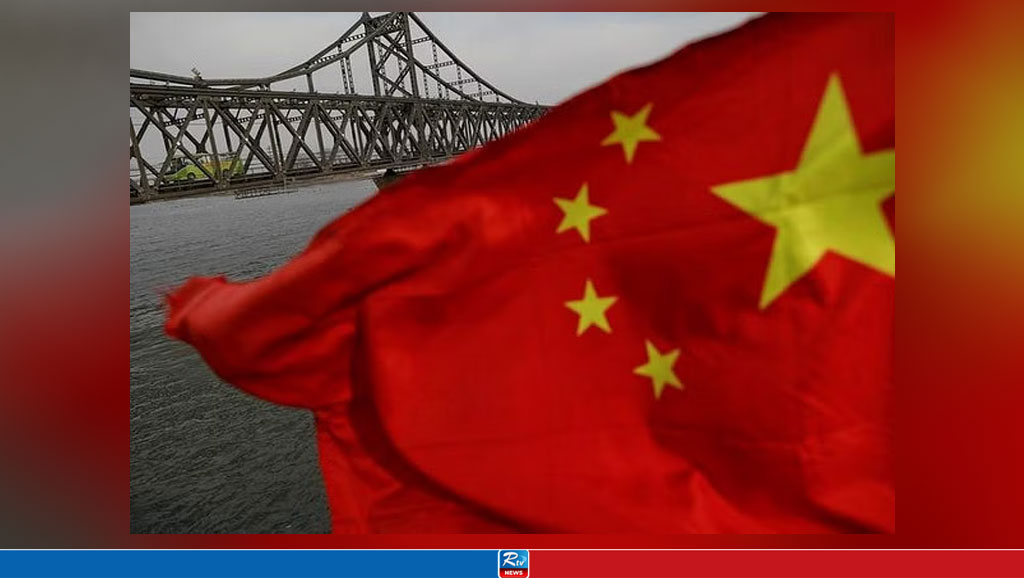Regional experts believe China’s efforts to mediate between the Myanmar junta and ethnic rebels on its northern border are motivated mainly by self-interest. However, Beijing’s efforts will unlikely have a significant effect on the conflict, VOA News reported.
According to the experts, China’s goals in convening the peace talk between the military and the Three Brotherhood Alliance, held most recently in Kunming on December 20, is two-fold. Experts believe China is making efforts to eliminate cyberfraud operations victimising Chinese citizens and to stabilise trade across the China-Myanmar border.
In an interview, Yun Sun, director of the China program at the Stimson Center, said, “So, the economic interest or the border trade is being affected, that is for sure.” Yun Sun said, “But that is a minor consideration compared to the cyber campaign. … The sooner it can be completed, the sooner the cease-fire is, and the sooner the stability can be restored.”
The armed conflict between the Myanmar junta and ethnic groups has caused a daily loss of about USD 10 million in bilateral trade between China and Myanmar, according to veteran Myanmar domestic political analyst Than Soe Naing. He said this loss is more damaging for Myanmar than China.
He said, “The flow of goods from the border region is not much compared to China’s international economic relations. Our country suffers more.” Beijing has taken care to be evenhanded in its statements regarding the talks, as per its public policy of solving problems and pursuing stability in the region through dialogue, VOA News reported.
In a statement on December 28, Chinese Foreign Ministry said Beijing “hopes that relevant parties in Myanmar will exercise maximum restraint, actively ease the situation on the ground, together realize the soft landing of the situation in northern Myanmar and take concrete actions to protect the safety and security of Chinese projects and personnel in Myanmar.”
Yun Sun said China’s main concern is not to address the issue of territorial control between the military council and ethnic forces in Myanmar. However, China wants to crack down on cyber scams located on the China-Myanmar border. It has been challenging for China.
The anti-junta People’s Defense Forces movement has gained momentum since a major offensive in late October, taking over significant amounts of area in the north, VOA News reported.
Both analysts believe that the Myanmar junta is now on the defensive and more likely to support a ceasefire. However, Than Soe Naing said the rebels will continue their offensive and that fighting is likely to intensify throughout northern Shan State.
He said, “China will sit and watch over the issue of who will win between the Military Council versus Spring Revolution forces in Myanmar.” He noted China will “come to whoever takes power in Burma” and will cooperate with the ruling entity and its plan, including the Belt and Road Initiative, VOA News reported.
Than Soe Naing said, “Let me give you an example: China is like a tiger sitting on a mountain watching two buffaloes fight. They will cooperate with the forces of whoever wins. However, according to their current practicing international diplomacy position, they will not take sides in this conflict. China will cooperate with whoever is in power. Even if there is a change in power, China will continue to cooperate with the new one in power,” according to the report.
He said China does not want external interference in the Myanmar issue. He said, “I believe China will continue to prevent the involvement of Western democratic forces in these issues in various ways.”
In 2023, an alliance of rebel forces in war-torn Myanmar took several key towns from the Myanmar military regime, The New York Times reported. The early successes of the alliance’s campaign, which began in Shan State in October last year, encouraged resistance forces in other parts of Myanmar, which have also taken control of several towns. Notably, Shan State is Myanmar’s largest state, covering almost one-fourth of the country.
The offensive began on October 27 after three ethnic armies – the Myanmar National Democratic Alliance Army, the Ta’ang National Liberation Army and the Arakan Army announced “Operation 1027.” The rebels, which call themselves the Brotherhood Alliance, opened fire on the military and captured trucks and weapons, according to videos posted on social media.
Earlier in November, the People’s Defence Forces said it had taken control of Kawlin, a town in the region of Upper Sagaing, and Khampat, a town in the west. Meanwhile, Karenni resistance forces said they have taken control of three military outposts in Mese, The New York Times reported.
For two years, the various armed ethnic groups, which have fought against the army for decades, and the People’s Defence Forces have combined forces, and they now control large parts of the countryside, according to The New York Times report. However, these groups have operated autonomously and are fragmented throughout Myanmar. The resistance movement has been encouraged by the successes of the Brotherhood Alliance.
Source: ANI

